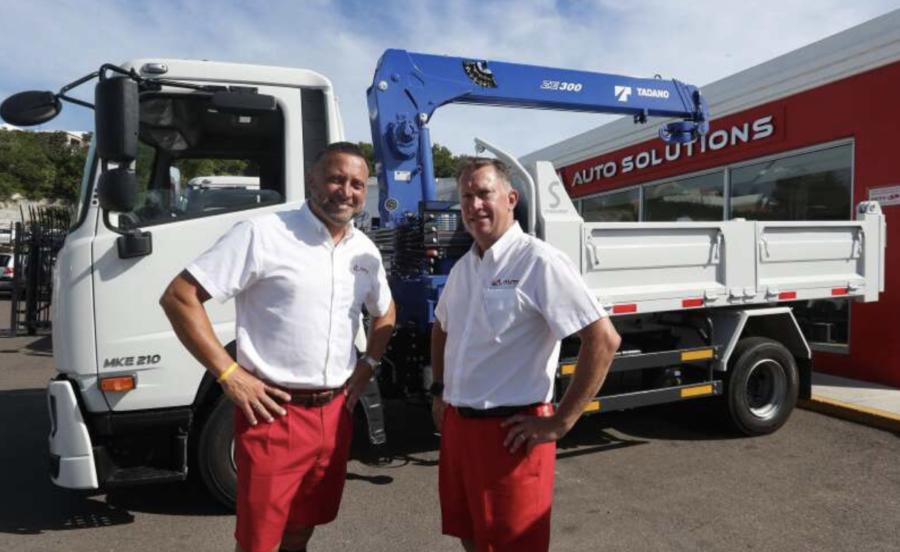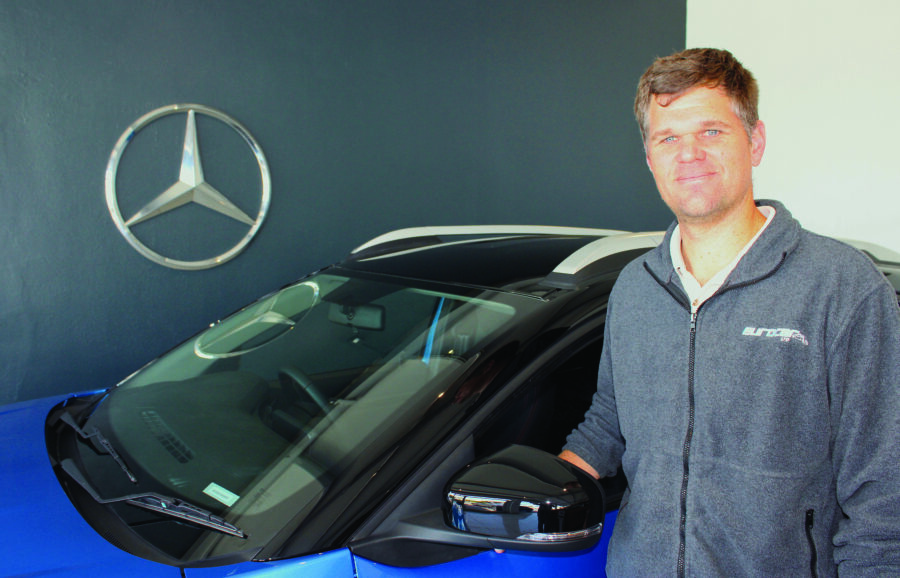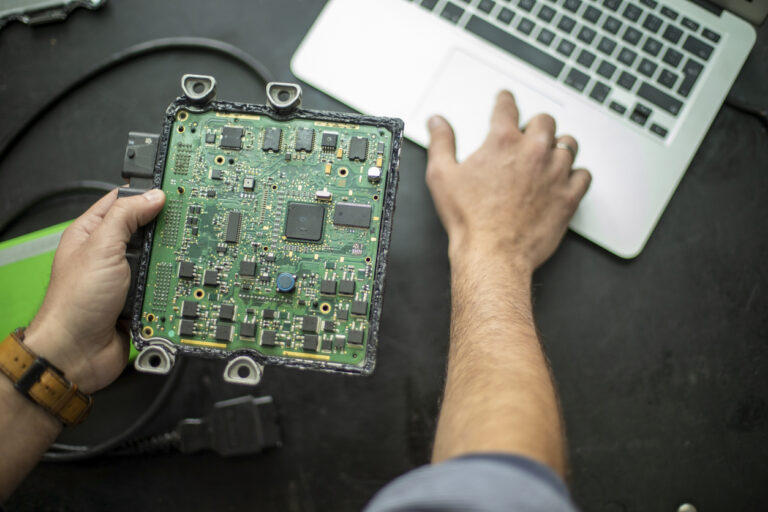Bermuda’s vehicle dealers have never seen anything like it. Car production bottlenecks have left customers waiting for months — some for more than a year — between ordering a new car and finally taking delivery of it. It’s a global issue and all local dealers are feeling the effects to varying degrees.
At the root of the problem are production delays caused by a lack of microchips. The average car contains about 1,300 chips — electric vehicles contain roughly twice as many.
In the early stages of the pandemic, microchip producers reduced output and shuttered plants, because they anticipated a slump in demand. At the same time, auto makers cut down their orders for chips. In reality, chip demand rocketed, fuelled by the mass switch to remote work and a spike in laptop sales, while, in the midst of lockdowns, online shoppers snapped all manner of chip-reliant devices.
Chip makers have been playing catch-up ever since and the production headaches for global auto makers have only been exacerbated by the war in Ukraine, where several key suppliers to the industry are located. It’s a perfect storm that has exposed the complexity and fragility of the auto industry’s global supply chain.
 At Auto Solutions, a dealer which sells a range of global brands, including Hyundai, Suzuki and Nissan, Glen Smith, the managing director, and Harry Andrews, the sales and operations manager, described some of their challenges.
At Auto Solutions, a dealer which sells a range of global brands, including Hyundai, Suzuki and Nissan, Glen Smith, the managing director, and Harry Andrews, the sales and operations manager, described some of their challenges.
“We just put in an order to one of our manufacturers and they can only give us 20 per cent of what we asked for,” Mr Andrews said. “That’s the dynamic we’ve been dealing with.”
Mr Smith said demand for new cars has remained strong, even though he can sometimes only give buyers a rough estimate of when their new vehicle will arrive. The issue is especially acute with chip-hungry electric vehicles, an area of growing appeal for local car purchasers who want to reduce their carbon footprint.
“The Hyundai Kona, our electric car, has done extremely well,” Mr Smith added. “We have close to 90 deposits sitting there waiting for this car. Some of these orders go back to November 2021.” The company honours the original price for orders, but sometimes takes a financial hit, because by the time the car is delivered, the price the manufacturers charge is higher than budgeted, after months of production cost increases.
Although many customers are surprised and sometimes frustrated by the prospect of a months-long wait to get behind the wheel of their new car, most have been understanding when the reasons are explained to them, Mr Andrews said. Whether they agree to wait is often determined by the condition of their existing car. If the replacement need is urgent, they may settle for a model or colour that was not their first choice.
Supply challenges also relate to parts and Mr Andrews said Auto Solutions had come up with some “workarounds” to keep customers’ cars on the road, for example in the case of electronic control units (ECUs) that render cars inoperable when they malfunction.
“We were having to wait eight months to replace these ECUs and we could not have a customer off the road for that long,” Mr Andrews said. “We did some networking with our counterparts in the Caribbean to see if they had a solution, because we know we’re all in the same boat.
“We ended up shipping these units to Barbados, where we could get them refurbished. We even helped a competitor with a similar model, for which the ECUs are interchangeable, to do the same. As fellow members of the Bermuda Auto Dealers Association, we’re in a small market and we never know when we’re going to need each other. We help each other for the benefit of the customer.”
Most new cars arrive in Bermuda on the massive car transporter ships that make occasional visits to the island, bringing in stock from manufacturers around the world. Some local dealers also bring in cars from the United States on the regular cargo ship the Oleander.
Auto Solutions has capitalised on this option by renting a bonded facility in New Jersey, where it stores new cars delivered to the US. “Every day there are vessels going from India, Korea or Europe to the US — and we can get cars on those ships, get them transported to the East Coast and store them in New Jersey,” Mr Smith said. “When a customer wants one of those cars, we can deliver it within a week.”
At Renault dealer Eurocar, the most apparent issue has been the delay in the arrival of a new electric car model. Richard Davidge, president of Eurocar, said: “We were given the OK to import the new Renault Megane electric vehicle. It’s already out in Europe and it was supposed to be here now, but it’s been delayed until the end of the year, because of production issues, related to the supply of components.”
There have also been delays with the manufacture of parts that were made in Ukraine until the war forced plants to close. “One of our manufacturers needed a part that had to be reengineered by another supplier in a different country,” Mr Davidge said. “And before they would release it, it needed to be thoroughly tested. It meant a part that I used to be able to get in about three or four weeks took more than six months to get.”
 Stephen Davidge, general manager of Eurocar and its sister company Prestige Autos, the Mercedes dealer, said the delays were longest for high-end vehicles. “Generally, you have to pre-order your vehicles at least a year in advance and it’s starting to extend even further out,” he said. “They’re already starting us to ask for our estimates of what 2024 will look like — that’s a difficult one.”
Stephen Davidge, general manager of Eurocar and its sister company Prestige Autos, the Mercedes dealer, said the delays were longest for high-end vehicles. “Generally, you have to pre-order your vehicles at least a year in advance and it’s starting to extend even further out,” he said. “They’re already starting us to ask for our estimates of what 2024 will look like — that’s a difficult one.”
Eurocar’s smaller vehicles, such as the Renault Zoe, which includes less technology and fewer chips than the larger models, has been uninterrupted by the production crisis and is selling well. “Last year we had a very good year and this year, it has continued to be solid,” Richard Davidge said. “Part of the reason may be that we actually have cars in stock — and we are fortunate that we have manufacturer partners who have continued to supply us.”

